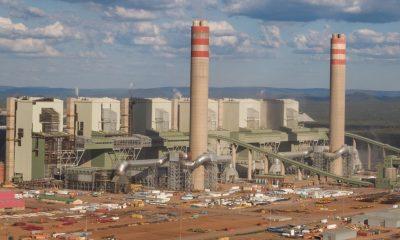Business
PwC Highlights Energy and Water Shortages as Key Risks for South African Businesses in 2025–2026

The PwC South Africa Economic Outlook for 2025, released on Monday, highlights energy and water supply shortages as the top concerns for South African business leaders in the coming years. Despite the suspension of load shedding since March 2024, companies remain wary of power disruptions, water crises, and extreme weather events affecting operations and economic growth.
Energy Supply Remains the Biggest Business Risk
PwC warns that energy disruptions remain the number one concern for business leaders, despite improvements in power supply. The report highlights unplanned generation breakdowns nearing 12,000MW as a major risk, reinforcing fears of potential blackouts in 2025–2026.
Key energy concerns for South African businesses:
- Continued risk of power cuts due to aging infrastructure and unexpected outages.
- Increasing reliance on imported energy like jet fuel and natural gas.
- Rising production costs due to unstable energy supply.
Mitigating Energy Risks: What Businesses Should Do
PwC recommends that businesses develop a comprehensive energy action plan to reduce dependence on public electricity and imported hydrocarbons. This includes:
- Energy efficiency audits to identify cost-saving measures.
- Investments in renewable energy sources like solar and wind power.
- Alternative fuel generators to ensure operational continuity.
Water Shortages: A Growing Crisis for Businesses
Nearly half of South Africa’s municipal water supply systems are in poor or critical condition, leading to widespread water shortages. According to PwC, non-revenue water losses (water that is lost due to leaks, theft, or unbilled consumption) have increased from 42% in 2014–2015 to over 46% in 2021–2023.
Why is South Africa facing water shortages?
- Aging infrastructure and maintenance failures are reducing water availability.
- Over-consumption and pollution are worsening supply issues.
- Extreme weather events like droughts and floods are further straining resources.
How Businesses Can Manage Water Risks
PwC advises businesses to take proactive steps, including:
- Rainwater and greywater harvesting to reduce municipal reliance.
- Backup water systems for emergencies.
- Collaboration with municipalities to address infrastructure issues.
Extreme Weather: The Hidden Business Disruptor
Climate-related risks, such as droughts, floods, hailstorms, and wildfires, have caused severe economic disruptions in South Africa. PwC warns that businesses need to assess their physical and transition risks across different climate change scenarios.
The economic impact of extreme weather:
- Mining operations have suffered drought-related shutdowns, leading to job losses.
- Floods have damaged infrastructure, increasing operational costs.
- Heatwaves and wildfires disrupt supply chains, affecting multiple industries.
Building Resilience Against Climate Risks
Christie Viljoen, PwC South Africa’s lead economist for macro analysis, emphasizes that businesses must adopt climate adaptation strategies:
- Identify vulnerabilities specific to their industry and location.
- Develop resilience plans to protect assets and operations.
- Invest in sustainable infrastructure to mitigate long-term risks.
The Bottom Line: Preparing for an Uncertain Future
With energy insecurity, water shortages, and climate risks looming, South African businesses must act now to safeguard their operations. PwC urges companies to conduct risk assessments, implement efficiency measures, and collaborate with stakeholders to navigate these challenges effectively.
{Source IOL}
Follow Joburg ETC on Facebook, Twitter , TikTok and Instagram
For more News in Johannesburg, visit joburgetc.com



























